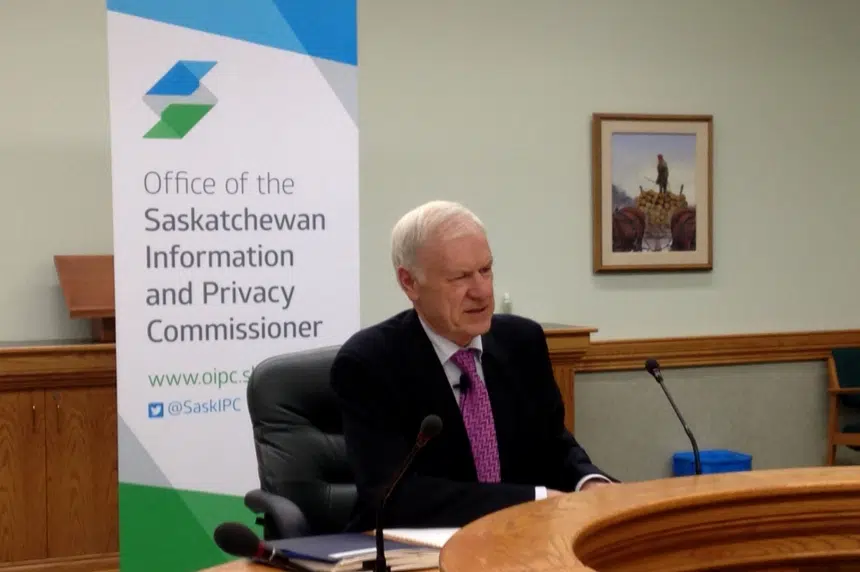Saskatchewan’s privacy commissioner does not believe the legislation behind the Regina police’s policy on naming murder victims needs to be changed.
The option was not ruled out by Justice Minister Don Morgan to settle a difference in the way he and the Regina Police Service interpret the Local Authority Freedom of Information and Protection of Privacy Act (LAFOIP) which came into effect in January.
Regina Police Chief Evan Bray has decided to release the names of murder victims on a case-by-case basis. Police will only release names in situations where it will help an investigation, to protect someone’s health or safety, after the first court appearance of someone charged in the crime or if it’s in the public interest.
Minister Morgan argued the chief is taking the wrong approach in his interpretation and explained the starting point should be that names are released except in rare cases, like pending next-of-kin notification or if it would compromise an ongoing investigation.
While on Gormley Wednesday, Privacy Commissioner Ronald Kruzeniski said regardless of which direction is taken, it still ends up being a case-by-case determination. He believes you could draft the policy either way and end up with the same result.
“If you say names will be released unless A, B, C, D or you say names will not be released except in the following circumstances A, B, C, D, I think you’ve hit the same thing,” he said.
Kruzeniski explained charges are laid in the majority of murder cases and when that happens, the name of the victim is made public through the courts.
If no charges are laid and if, for example, it becomes a cold case, Kruzeniski believes the chief can still release the name to the public. The privacy commissioner interprets LAFOIP as telling the chief to weigh all the factors in a case, including what is already in the police policy like a safety issue or if he simply deems it in the public interest.
“It’s hard to put a real good definition on public interest and I think you have to rely on the police chief at the time to say ‘When I hear the summary of the facts, I think it’s in the public interest to release it,'” said Kruzeniski.







